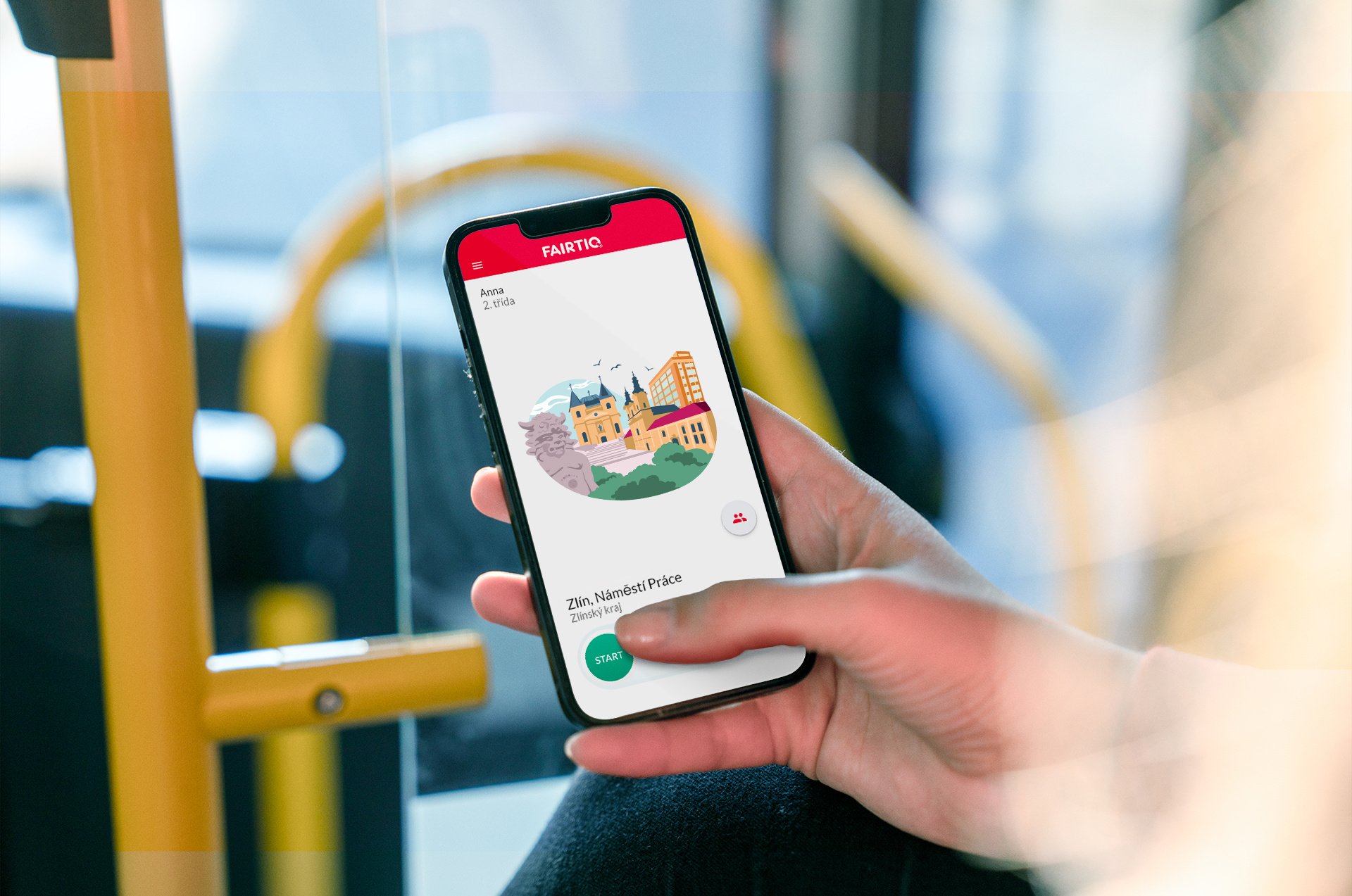
Promoting sustainable corporate mobility strengthens the public transport sector and enhances employer branding
According to an article by the World Economic Forum, "Sustainability will play a key role in the coming years and embedding it at the core of corporate strategy will be critical." It goes on to say “Sustainability is vital for businesses if they are to manage pressure from investors, respond to consumer demands, comply with regulatory requirements, recruit talent and increase productivity.” Mobility budgets can help companies not only achieve their sustainability goals but also promote greater public transport use.
Mobility budgets enable employees to choose freely between different environmentally-friendly modes of transport. They boost employer branding and reinforce the sustainability credentials of the public transport industry. This win-win-win formula explains the growing interest in mobility budgets. Although recent studies have found them to be effective, employers have yet to harness the full potential of mobility budgets to boost the sustainability of their business.
For younger generations in particular, sustainability and flexibility rank high on their list of core values.
Work-related mobility choices that are as flexible and sustainable as employees' lifestyles
A mobility budget is a fixed monthly or annual allowance that companies give their employees to cover the costs of travelling for work on public transport or other environmentally-friendly modes of transport like bike- and car-sharing. It gives employees freedom of choice while allowing companies to reduce their spend on mobility. The mobility budget also incentivises the shift away from private vehicle use, especially when the allowance can be used to cover the costs of personal travel as well. The modern traveller should be able to make work-related mobility choices that are in keeping with the values that inform how they live. For younger generations in particular, sustainability and flexibility rank high on their list of core values. Mobility budgets facilitate access to environmentally-friendly, flexible means of transport that reflect the users' ethical ideals. What's more, they mean that employees no longer have to contend with daily traffic jams, saving them time and allowing them to arrive at their destination in a better mood.
Mobility budgets – a fair and democratic token of appreciation for employees
Employees who enjoy an easy, problem-free commute without having to always watch the clock are more productive, motivated, and have a more positive view of their employer. Mobility budgets send a clear signal that the employer values the health, well-being and work-life balance of its employees. It is also an expression of appreciation that democratises the experience of having a company car. Rather than being a status symbol reserved for the few, the mobility budget is a token of recognition for all, no matter what role they play in the company.
The stronger this modal shift is, the higher the rise in public transport use will be, which in turn means increased sales revenue for operators.
McKinsey: users want frictionless access to all forms of public transport
In a survey conducted by management consultants McKinsey, 87% of respondents stated that a mobility budget should primarily cover local and regional public transport services (buses, underground trains, trams etc.). Some 81% wanted the budget to include long-distance train services, too. Among the most important features of a mobility budget cited by respondents were ease of use, automated billing and a single digital booking platform for all transport services. Another decisive factor for making the shift from the car to public transport is frictionless access across regional providers and fare zones. It is therefore in the providers' and networks' own interests to offer mobility budget users a digital ticketing solution coupled with a hassle-free, seamless travel experience. The stronger this modal shift is, the higher the rise in public transport use will be, which in turn means increased sales revenue for operators.

Greater cost efficiency for companies
Easy-to-use digital booking and billing processes can minimise the administrative workload normally associated with introducing a mobility budget, making it a financially worthwhile option for employers. According to McKinsey, mobility budgets can lead to considerable savings, especially on companies' fleet costs (maintenance, parking, insurance, etc.). In addition, the mobility expenditure data generated by a digitally supported mobility budget are more detailed and precise, which facilitates better data analytics that can help the company boost its resource efficiency.
For companies, sustainability is now more than an ethical choice. It is also key to driving their business success and enhancing their employer brand.
World Economic Forum: sustainability gives firms the competitive edge
While mobility budgets encourage more sustainable transport choices, there is also an increasingly persuasive argument to be made for sustainability as a business case. In a 2022 report, the World Economic Forum (WEF) cited a study which found that 85% of investors took sustainability factors into account when making their investment decisions. Sustainability is also influencing purchasing behaviour. Younger generations in particular are willing to spend more on products or services if the provider or company has solid sustainability credentials. For companies, sustainability is now more than an ethical choice. It is also key to driving their business success and enhancing their employer brand.
The WEF recommends that companies looking for motivated employees should embed sustainability in their corporate strategy.
A head start in the race for talent
When skilled labour is in short supply, the ability of a company to position itself as a sustainable employer can put it ahead of its competitors when it comes to attracting talent, especially young workers. Almost half of Gen-Zs and millennials said that it was important to them that their potential employer's values dovetail with theirs. The WEF recommends that companies looking for motivated employees should embed sustainability in their corporate strategy. Mobility budgets could therefore serve as not only a pillar of a company's sustainability strategy but also tangible proof of its responsiveness to employee concerns and its commitment to environmentally-friendly business practices.
More than 60 million potential public transit users who could generate a revenue increase of between 3.6 and 7.2 billion euros.
Potential gains in the millions
McKinsey estimates that the employee mobility budget market in Europe is massive, with more than 60 million potential public transit users who could generate a revenue increase of between 3.6 and 7.2 billion euros. The wider uptake of mobility budgets could also significantly accelerate the shift to sustainable transport and slash road traffic, which means that 60 million more people will travel to work happier and feel a greater sense of loyalty to their employer. Mobility budgets offer companies of all sizes and in all sectors an opportunity to proactively promote sustainable mobility, sharpen their competitive edge, and become a more attractive employer. It is high time that they seize this chance.
How the FAIRTIQ mobility budget worksWith the FAIRTIQ mobility budget, companies choose how much they want the budget or budgets to be and whether their employees can use the allowance to cover the costs of personal travel, too. Employees receive an activation code in the FAIRTIQ app, giving them access to the simplest public transport ticket in Switzerland, Liechtenstein and FAIRTIQ partner regions in Austria, Germany, France and the Czech Republic. We can also provide customised features, such as discounted or free travel between your company's different sites. To further incentivise public transport use, we work with public transport companies, associations and other mobility providers to integrate your employee mobility budget in their fare schedules. |
Sources:
McKinsey & Company: How mobility budgets can change the future of transportation. 31 October 2023. Online available here
World Economic Forum: Why sustainability is crucial for corporate strategy. 9 June 2022. Online available here







Share